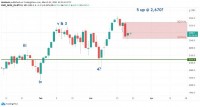|
Bailey McCann, Private Equity Strategies In our Next Generation series we focus on new academic work and programs focused on private equity around the world. A new study released by Geoffrey Wood, of Warwick Business School, Marc Goergen, of Cardiff University, and Noel O’Sullivan, of Loughborough University, have discovered that private equity buyouts may be harming the overall performance of the companies included in the transaction. According to the data, when they compared 105 publicly-listed firms that went through a buy-out between 1997 and 2006 to a control group of their industry rivals they fell further behind after the takeover. The study found that four years after the buy-out the performance gap between the two groups had tripled, from GBP29,000 - as measured by turnover per employee - to GBP89,000. This was coupled with 59% of the private equity IBO firms reducing the size of their workforce in the first year compared to 32% in the control group. The British Venture Capital Association has responded to the report, saying that its focus exclusively on the employment consequences of institutional buyouts (IBOs), makes the conclusions partial and oversimplified. "Rather than ensuring that the report overcomes the difficulties of recognizing the heterogeneity of private equity investment and providing "greater empirical clarity" to the issue, this simply means that the report is a partial and unrepresentative look at private equity. The study concerns itself with a very small subsection of private equity deals and therefore any claims that this represents the private equity industry as a whole are erroneous," the association wrote in a statement. They went on to say, "it appears that the authors have begged the question - they have started with the hypothesis that private equity is damaging to employment, wages and productivity, and sought to examine only those deals which they believe are most likely to prove this hypothesis." The association also takes issue with the time frame of examination which is four years, as most private equity investments last five to seven years. However, that note by the association may have the unintended effect of supporting the assertions of the paper, by implying that private equity investment requires at a minimum four years of growing pains before improvements can be seen. Professor Geoffrey Wood responded: "The drop in our sample is a reflection of the secretiveness of the private equity industry and the difficulty of tracing target firms after their acquisition. We have made a colossal effort to trace firms after their acquisition, but in some cases a lack of disclosure, often combined with a move of the target firm’s headquarters to tax havens such as Nassau or Luxembourg, has prevented us from obtaining data post-acquisition. The cynic would state that some private equity houses make a huge effort to hide their target firms within a chain of shell companies. We encourage the BVCA to improve disclosure by the industry so that studies such as ours can be more representative. "We do not claim that our study is representative of the whole private equity industry; the focus of our study is on institutional buy-outs (IBOs). IBOs are acquisitions by private equity houses of publicly quoted UK companies. Hence, contrary to some of the existing studies we do not include relatively small, unquoted private companies. Some of the companies covered by our study include Debenhams, Pizza Express and United Biscuits." The professor also noted that the study is specifically focused on institutional buyouts and specifically sought to avoid inclusion of other types of buyouts, such as management buyouts rather than confuse the data set. He also said that the drop in unemployment took into account the fact that companies targeted for a buyout were likely already underperforming thus accounting for any employment drop.
| |
|
This article was published in Opalesque's Private Equity Strategies our monthly research update on the global private equity landscape including all sectors and market caps.
|
Private Equity Strategies
The Next Generation: Academic Study Shows Lack of Transparency by GPs Harms Performance |
|





 RSS
RSS











